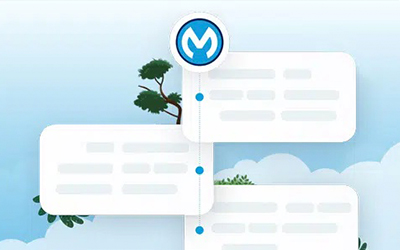Software as a Service (SaaS) applications have permeated businesses of varying sizes and industries. These apps connect us to customers, colleagues and our data. However, while we are connected, too often, nothing connects these apps.
With your team using so many different apps, your business needs a way to integrate them to create a seamless experience for customers and staff. Integration Platform as a Service (iPaaS) is one method for improving data flow and ensuring your apps talk to each other.
What is an iPaaS system?
iPaaS is an enterprise application integration solution that enables you to rapidly connect and manage applications, data sources and services in the cloud. You can automate processes, create workflows, facilitate collaboration, and allow secure access between different systems.
iPaaS solutions have a comprehensive set of tools that enable users to connect diverse applications and systems, add new integrations, migrate existing integrations, manage data security and compliance policies, track app usage and ensure performance optimisation. With iPaaS solutions, your business can keep up with the ever-changing landscape of digital technologies.
You can leverage iPaaS to power a range of business solutions, from enterprise integration to customer service automation and everything in between. iPaaS solutions enable you to focus on their core competencies rather than investing more time than necessary on integrations.
What are the benefits of iPaaS implementation?
Implementing iPaaS can generate various benefits for your organisation, including:
Scales with your organisation
You need solutions that can scale as your number of applications increases, the amount of data you collect grows, and your business expands. iPaaS enables you to integrate applications and data sources across multiple cloud environments to manage your entire IT infrastructure from a single location securely. You can quickly deploy new applications and services as needed to increase customer satisfaction and drive business growth.
A standard approach to multiple integrations
iPaaS solutions provide a standardised way to integrate multiple applications, meaning that you do not need to spend time and resources developing custom integration solutions. iPaaS solutions usually have many features, such as automated data synchronisation, application integration across different platforms, and workflow automation. With an iPaaS solution, users can quickly set up connections between systems and devices to exchange information.
Remove silos from your organisation
Data silos create a lack of transparency and collaboration between departments, leading to inefficient processes and an inability to gain insights from the data. An iPaaS solution breaks down these silos by integrating different systems and applications across your organisation, enabling data to flow seamlessly between departments. You can gain a single view of your data and make informed decisions based on real-time insights. With the use of iPaaS, you can speed up communication and collaboration between teams and ensure that data is securely stored and managed in one centralised space.
Increase accuracy
Manual processes give way to data inaccuracies. iPaaS eliminates manual processes by connecting information between different applications and datasets, ensuring higher accuracy in all business areas. The integration allows you to have better control over data with real-time access, including predictive analytics that anticipates what is likely to happen in the future.
Reduce costs associated with integration
iPaaS solutions reduce the costs associated with integration. By leveraging automation, iPaaS solutions cut manual effort and the resources required to set up and maintain integrations. This leads to cost savings in both time and money, allowing your team to focus more on core business operations. In addition, iPaaS solutions can reduce the cost of error by eliminating mistakes from manual processes and automating data management.
What is the difference between iPaaS and API management?
You might be familiar with API management and how APIs facilitate integration across applications and data. While APIs are the building blocks of iPaaS, API management focuses on building and managing APIs to use them for faster access to data and to govern policies around this access.
iPaaS provides an automated way of connecting applications, databases, systems, and services via pre-built integrations. API management is a platform offering tools and services for developers to manage their APIs. It offers security, analytics, and monitoring control over access to the APIs hosted on iPaaS or another platform.
iPaaS and API management are essential for businesses that need to provide secure, reliable integrations between their various systems and services. By leveraging both of these tools, you can develop a robust integration architecture that is future-proofed to meet the ever-changing digital world.
How long does iPaaS implementation take?
The speed of iPaaS implementation largely depends on the complexity of the integration. While you can set up simple integrations quickly, complex processes require more time.
When setting up iPaaS implementation, it is important to consider the technical and business requirements before going into the implementation process. If your organisation has existing integrations, look at them in detail to identify any gaps you need to fill. It is also a good idea to review any third-party systems you plan to integrate with because these can indicate how long the implementation might take and what the process may involve.
MakeSense is your partner in iPaaS implementation
You have a business vision, but are you unsure where to start? We know that mapping the next steps of your integration strategy feels daunting, and we believe having a second pair of eyes to find direction is the starting point.
MakeSense delivers consulting and strategy, architecture and design, implementation, and support solutions. We are end-to-end MuleSoft experts and wholly believe in the returns generated by their platforms.
Our experts can assess your current strategy, make recommendations, and implement solutions. Learn more about our Integration Services , our end-to-end recruitment support and how we can support your business.









